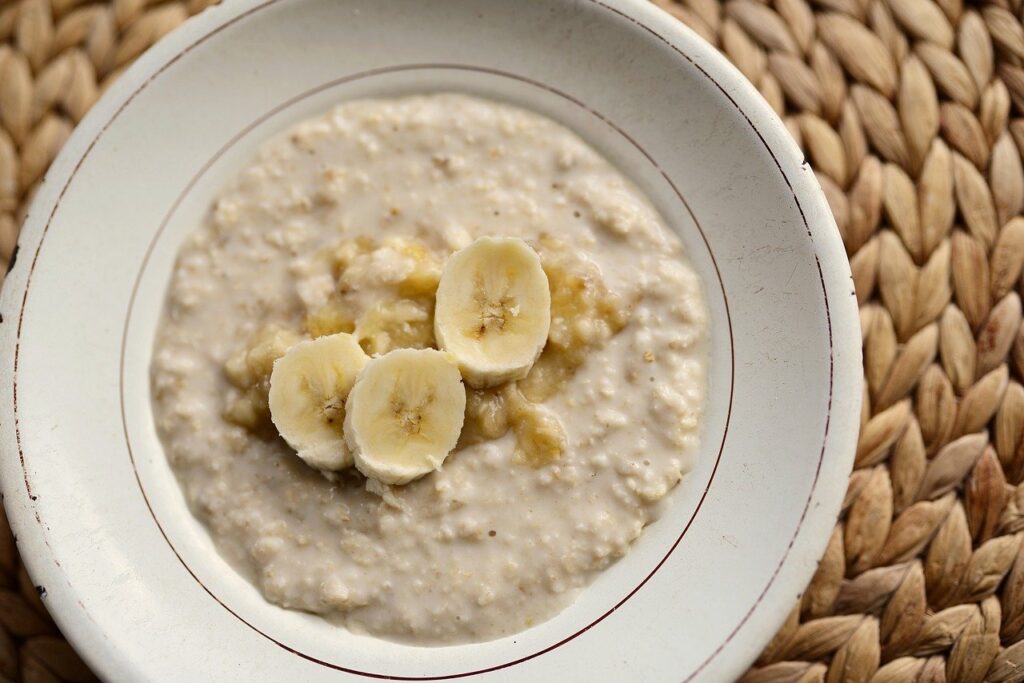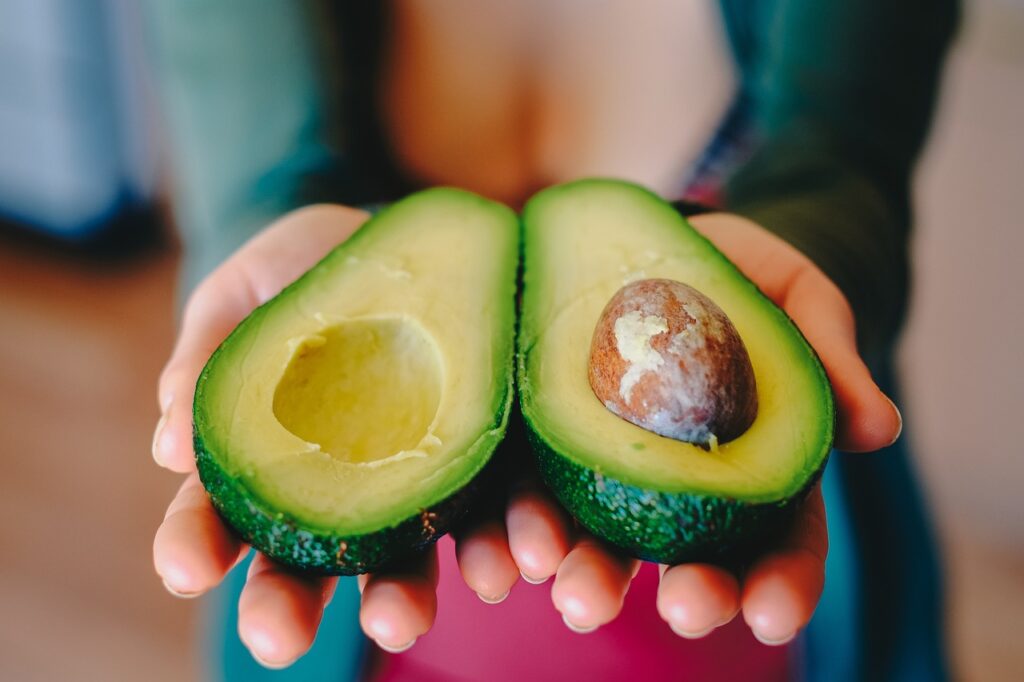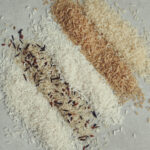
Overview
Breakfast is often referred to as the most important meal of the day, and for good reason. After a night of fasting, your body needs the right nutrients to jumpstart your metabolism, fuel your brain, and prepare you for a productive day ahead. However, not all breakfasts are created equal, and the choices you make can either set you up for success or leave you feeling sluggish and hungry before lunchtime.
In this comprehensive guide, we’ll dive into what makes a breakfast truly healthy, explore the key components of a balanced morning meal, and provide a variety of options that are both delicious and nutritious. By the end of this article, you’ll have all the tools you need to make the best breakfast choices for your health and lifestyle.
Why Is Breakfast Important?
Eating breakfast is associated with numerous health benefits, including improved cognitive function, better mood, enhanced metabolism, and more consistent energy levels. Research has shown that people who eat breakfast regularly are more likely to maintain a healthy weight, have better overall nutritional intake, and reduce their risk of chronic diseases like type 2 diabetes and heart disease.
Skipping breakfast, on the other hand, can lead to negative consequences such as low blood sugar, increased cravings for unhealthy foods, and overeating later in the day. When you miss out on the first meal of the day, you’re more likely to reach for snacks high in sugar, refined carbs, and unhealthy fats—foods that can lead to weight gain and energy crashes
Related : Fruits with the Most Protein
Healthy Breakfast
A well-rounded breakfast should contain a balance of macronutrients—carbohydrates, protein, and healthy fats—as well as essential vitamins, minerals, and fiber. To build a breakfast that fuels your body and keeps you satisfied, aim to include the following components
Whole Grains

Whole grains are an excellent source of complex carbohydrates, which provide your body with a steady supply of energy throughout the morning. Unlike refined grains, whole grains are rich in fiber, which helps to stabilize blood sugar levels, promote digestion, and keep you feeling full for longer. Examples of whole grains include oats, whole wheat bread, quinoa, and brown rice.
Best whole grains for breakfast
- Oatmeal
- Whole grain toast
- Quinoa porridge
- Whole wheat pancakes
Protein

Protein is crucial for muscle repair, growth, and overall satiety. Including a source of protein in your breakfast can help you stay full until your next meal, while also providing the building blocks your body needs for various functions. Protein helps to stabilize blood sugar levels, reducing cravings for sugary snacks later in the day.
Best sources of protein for breakfast
- Eggs
- Greek yogurt
- Cottage cheese
- Plant-based options like tofu, tempeh, or legumes
Related : Drinks That May Help You Sleep
Healthy Fats

Healthy fats provide long-lasting energy, support brain health, and help your body absorb fat-soluble vitamins like A, D, E, and K. Including unsaturated fats in your breakfast can enhance satiety, making you feel fuller for longer without the energy spikes and crashes associated with sugary foods.
Best sources of healthy fats for breakfast
- Avocados
- Nuts and seeds (almonds, chia seeds, flaxseeds)
- Nut butters (peanut butter, almond butter)
- Olive oil
Fruits and Vegetables

Fruits and vegetables are packed with vitamins, minerals, antioxidants, and fiber, making them an essential part of any balanced breakfast. Incorporating a variety of colorful fruits and veggies into your morning meal can boost your immune system, improve digestion, and help you meet your daily nutritional needs.
Best fruits and vegetables for breakfast
- Berries (blueberries, strawberries, raspberries)
- Bananas
- Leafy greens (spinach, kale)
- Tomatoes, peppers, and mushrooms
Related : Veggies That Can Help You Lose Weight
The Healthiest Breakfast Ideas
Now that we’ve covered the key components of a healthy breakfast, let’s explore some of the best breakfast options that incorporate these elements. Whether you prefer a savory meal or have a sweet tooth, there’s something on this list for everyone.
Oatmeal with Berries and Nuts
Oatmeal is a classic breakfast option that is both versatile and nutrient-dense. It’s a great source of complex carbohydrates and fiber, which provide long-lasting energy. To make it even healthier, top your oatmeal with fresh berries for a boost of antioxidants, and add a handful of nuts or seeds for protein and healthy fats.
Recipe idea
- 1/2 cup of rolled oats
- 1 cup of water or milk (dairy or plant-based)
- A handful of blueberries or strawberries
- A sprinkle of chia seeds or flaxseeds
- A small handful of almonds or walnuts
Greek Yogurt Parfait with Granola
Greek yogurt is high in protein and contains probiotics, which support gut health. You can create a nutrient-packed parfait by layering Greek yogurt with homemade granola, fresh fruits, and a drizzle of honey. This breakfast option is not only delicious but also offers a balance of protein, healthy fats, and fiber
Related : Top Cancer-Fighting Foods You Should Add to Your Diet
Recipe idea
- 1 cup of plain Greek yogurt
- 1/4 cup of granola (preferably low-sugar)
- A handful of mixed berries (blueberries, raspberries, blackberries)
- 1 teaspoon of chia seeds or hemp seeds
- A drizzle of honey or maple syrup
Avocado Toast with Eggs
Avocado toast is a favorite breakfast choice that’s both tasty and nutrient-rich. Avocados are packed with healthy fats, fiber, and a variety of vitamins and minerals. Top whole-grain toast with mashed avocado and a poached or scrambled egg for added protein. You can also enhance the flavor by adding spices like red pepper flakes or fresh herbs.
Recipe idea
- 1 slice of whole-grain bread
- 1/2 ripe avocado, mashed
- 1 poached or scrambled egg
- A sprinkle of sea salt, black pepper, and red pepper flakes
Related : Unusual Signs of Dehydration You Should Know About
Veggie Omelette with Whole-Grain Toast
Eggs are one of the best sources of high-quality protein, and they’re also rich in nutrients like choline, which supports brain health. A veggie-packed omelette is a great way to start your day with a serving of protein and fiber-rich vegetables. Pair it with a slice of whole-grain toast for extra fiber and energy.
Recipe idea
- 2 large eggs, beaten
- 1/4 cup of chopped spinach
- 1/4 cup of diced tomatoes
- 1/4 cup of sliced mushrooms
- 1 slice of whole-grain toast
Smoothie Bowl
Smoothie bowls are a fun and colorful way to pack in plenty of fruits, vegetables, and healthy fats. By blending nutrient-rich ingredients like leafy greens, bananas, and berries, you can create a thick, creamy base that’s loaded with vitamins, minerals, and antioxidants. Top your smoothie bowl with chia seeds, coconut flakes, and a handful of granola for added texture and nutrients.
Recipe idea
- 1 banana
- 1/2 cup of frozen berries
- 1/2 cup of spinach or kale
- 1/2 cup of Greek yogurt or almond milk
- Toppings: chia seeds, coconut flakes, granola, sliced almonds
Foods to Avoid for Breakfast
While it’s important to focus on nutrient-dense, whole foods, it’s equally important to be aware of what to avoid. Many popular breakfast items are packed with refined sugars, unhealthy fats, and empty calories. These foods can lead to energy crashes, weight gain, and poor overall health if consumed regularly.
Sugary Cereals
Many commercial breakfast cereals are loaded with added sugars and refined grains, which provide little nutritional value. Instead of reaching for a sugary cereal, opt for whole-grain options like oatmeal or muesli, which are higher in fiber and have a lower glycemic index
Related : 10 Ways to Fight Sugar Cravings
Pastries and Donuts
Pastries, donuts, and other baked goods are often high in refined carbs, unhealthy fats, and sugars. While they may provide a quick energy boost, the crash that follows can leave you feeling tired and hungry. If you crave something sweet, try a homemade muffin made with whole-grain flour and natural sweeteners
Flavored Yogurt
Flavored yogurts often contain large amounts of added sugar, which can outweigh the benefits of the probiotics and protein found in yogurt. Instead, choose plain Greek yogurt and add your own fresh fruit and honey for sweetness.
Processed Meats
While bacon and sausage may be popular breakfast choices, they are often high in saturated fats and sodium, which can contribute to heart disease and other health issues. Opt for leaner protein sources like eggs, turkey bacon, or plant-based alternatives.
Time-Saving Tips for a Healthy Breakfast
Mornings can be hectic, but with a little planning, you can ensure that you’re still able to enjoy a nutritious breakfast even when you’re short on time. Here are some tips to help you make healthy breakfasts a reality:
Prep the Night Before
One of the best ways to save time in the morning is by preparing your breakfast the night before. Overnight oats, chia seed pudding, and hard-boiled eggs can all be prepped in advance, so you can grab them and go in the morning.
Make Smoothie Packs
Smoothies are a quick and easy breakfast option, but chopping fruits and vegetables can take time. To save time, create individual smoothie packs by pre-measuring your ingredients and storing them in the freezer. In the morning, all you need to do is blend the pack with your choice of liquid
Batch Cook Breakfast
If you have a bit more time on the weekend, consider batch-cooking some breakfast options that you can easily reheat throughout the week. Recipes like egg muffins, homemade granola, or healthy pancakes can be prepared in advance and stored in the fridge or freezer. This way, you’ll have a healthy breakfast ready to go each morning, even when you’re in a rush.
Choose Grab-and-Go Options
For those truly hectic mornings, it’s helpful to have grab-and-go options on hand. Keep a supply of hard-boiled eggs, fruit, or whole grain toast that you can eat while you’re on the move. Protein bars made from whole food ingredients are also a good option, but be sure to choose ones that are low in added sugars and high in fiber
Sample Healthy Breakfast Meal Plan
To help you visualize how to incorporate these ideas into your routine, here’s a sample 5-day healthy breakfast meal plan that’s easy to follow and balanced in nutrients.
Day 1: Oatmeal with Nut Butter and Berries
- 1/2 cup of oats cooked with water or almond milk
- 1 tablespoon of almond butter
- 1/4 cup of mixed berries (blueberries, raspberries)
- A sprinkle of chia seeds for added fiber and omega-3s
Day 2: Veggie Omelette with Whole Grain Toast
- 2 eggs beaten and cooked with spinach, tomatoes, and mushrooms
- 1 slice of whole grain toast with avocado
- 1 small orange or 1/2 grapefruit
Day 3: Greek Yogurt with Granola and Fresh Fruit
- 1 cup of plain Greek yogurt
- 1/4 cup of homemade or low-sugar granola
- A handful of sliced strawberries or blueberries
- A drizzle of honey for natural sweetness
Day 4: Smoothie Bowl
- Blend 1 banana, 1/2 cup of frozen berries, and a handful of spinach with almond milk
- Pour into a bowl and top with chia seeds, granola, and sliced almonds
Day 5: Avocado Toast with Poached Egg
- 1 slice of whole grain toast with mashed avocado
- 1 poached egg
- Sprinkle of sea salt, pepper, and red pepper flakes
The Benefits of a Consistently Healthy Breakfast
Sticking to a healthy breakfast routine can have lasting positive effects on your physical and mental well-being. Some of the key benefits include:
Better Energy Levels
A nutrient-dense breakfast provides the fuel your body needs to start the day strong. With a balanced meal that includes whole grains, protein, and healthy fats, you’ll experience sustained energy levels and fewer crashes throughout the morning
Improved Concentration and Focus
Eating breakfast helps improve cognitive function, including memory, attention, and focus. This is especially important for children and students, but adults also benefit from improved mental clarity after a healthy morning meal.
Weight Management
People who eat breakfast regularly tend to have better control over their weight. By starting the day with a nutritious meal, you’re less likely to overeat later on or indulge in unhealthy snacks. Studies suggest that people who skip breakfast are more likely to have irregular eating patterns and consume more calories overall.
Better Mood
Eating a balanced breakfast can positively affect your mood by regulating blood sugar levels and providing key nutrients that support brain function. This can reduce irritability, improve motivation, and lead to a more positive outlook on the day ahead.
Reduced Risk of Chronic Diseases
A nutritious breakfast can lower your risk of chronic diseases like heart disease, type 2 diabetes, and high blood pressure. Foods rich in fiber, such as whole grains and fruits, help maintain healthy cholesterol levels, while lean proteins and healthy fats support heart health
The Takeaway
Starting your day with a balanced, nutrient-dense breakfast can set the tone for healthier choices throughout the day. By incorporating whole grains, protein, healthy fats, and a variety of fruits and vegetables into your morning meal, you’ll be giving your body the fuel it needs to thrive. Whether you prefer a savory veggie omelette or a sweet smoothie bowl, the key is to choose foods that nourish your body and keep you feeling satisfied.
By making breakfast a priority, you’re investing in your long-term health, energy, and overall well-being. Experiment with different combinations of whole grains, proteins, and healthy fats to find what works best for you. With a little planning and creativity, you can enjoy delicious, healthy breakfasts that will keep you energized and focused throughout your day.
So, next time you’re tempted to skip breakfast or grab a sugary pastry on the way to work, remember: your body deserves better. Make a commitment to start your mornings off right with a balanced breakfast, and you’ll notice the difference in how you feel, both mentally and physically
FAQs: What Are the Healthiest Breakfasts?
- What are some quick and healthy breakfast options?
Some quick and healthy breakfast options include overnight oats with fresh fruit, Greek yogurt with granola, smoothies packed with greens and protein, and avocado toast with a poached egg. These meals can be prepared in advance or take just a few minutes to make. - Is it important to include protein in breakfast?
Yes, including protein in breakfast is important for staying full and energized throughout the morning. Foods like eggs, yogurt, nuts, seeds, and lean meats can help stabilize blood sugar levels and prevent mid-morning cravings. - Are smoothies considered a healthy breakfast?
Smoothies can be a healthy breakfast option when made with whole ingredients like fruits, vegetables, protein sources (like Greek yogurt or protein powder), and healthy fats (such as nut butter or chia seeds). Avoid smoothies with excessive added sugars or processed ingredients. - How can I make breakfast healthier if I’m always on the go?
For busy mornings, consider grab-and-go options like hard-boiled eggs, protein bars (low in added sugars), whole grain toast, or overnight oats. Batch-cooking healthy breakfast items like egg muffins or homemade granola can also save time during the week.











